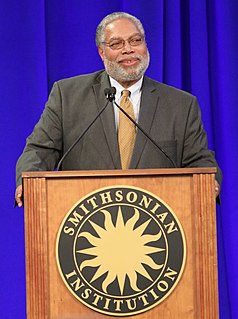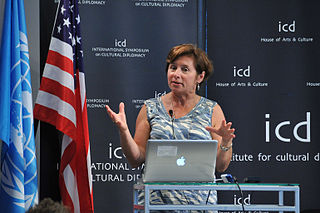A Quote by Quentin Tarantino
I would've written this story [Django] if [Barack] Obama were president or if he never existed. For one, I think it's time to tell a story that deals with this subject America has avoided for so long. Most countries have been forced to deal with the atrocities of their past that still affect them to this day. But America has been pretty slippery in the way that it has avoided looking slavery in the eye. I believe that's a problem.
Related Quotes
I think the Democrats have - we really have failed to be in rural America, in the sense of having our leaders spending time talking to folks in rural America. The president Barack Obama has been there, but other than the president and vice president, we have had not a whole lot of conversation in rural America.
The story of slavery is everybody's story. It is the story about how we're all shaped by, regardless of race, regardless of how long we've been in this country. We hope that we can be a factor to both educate America around this subject but maybe more importantly help Americans finally wrestle with this, talk about it, debate it, because only through that conversation can we ever find the reconciliation healing that I think we all want.
There are some really great books that have been written about slavery, but I don't think that the discourse about it in society has been very accurate or healthy. I don't think we've come up with ways to tell it that don't insult people or hit them in the wrong way. Part of the problem is that most people don't really understand what slavery was anyway. Most white people didn't own slaves. Slavery was a way of life, just like driving cars is a way of life now. It doesn't mean that it was right.
Looking back, I do think one of the reasons 'Thirteen Reasons Why' has been so successful is not because it deals with serious issues but because I had a unique and interesting way to tell that story. I knew the issues were going to be dealt with in the book, but I felt my job was to write the story as entertainingly as possible.
America was my home for a very long time, and it's a fascinating, pioneering country that many people look to. In the recent past it hasn't been doing very well, but there's a great new hope now with the election of Obama. America took a very big leap there and proved that it still has the edge as far as being able to do things many other countries may find difficult.
Distances and days existed in themselves then; they all had a story. They were not barriers. If a person wanted to get to the moon, there is a way; it all depended on whether you knew the directions, on whether you knew the story of how others before you had gone. He had believed in the stories for a long time, until the teachers at Indian school taught him not to believe in that kind of "nonsense". But they had been wrong.
In terms of America, I think any profound consideration is bound to return us to the notion of twins because, though you certainly can contend there are many Americas, our history has been binary from the beginning, with its hairline fracture down the country's center between what American has wanted to be and what America has been. That fracture is slavery, of course. To some extent it's still slavery, in that collectively we refuse to come to grips with the American fact of slavery.






































